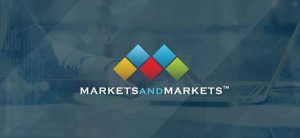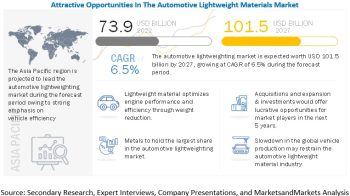
The global battery electrolyte market is projected to grow from USD 4.20 billion in 2018 to USD 6.18 billion by 2023, at a CAGR of 8.1% from 2018 to 2023. Increasing adoption of EV to reduce carbon footprint, rapid increase in automotive sales, high demand from replacement market of automotive batteries, and increasing share of alternative energy sources in the energy mix are the key factors driving the growth of the battery electrolyte market.
Download PDF Brochure at https://www.marketsandmarkets.com/pdfdownloadNew.asp?id=78609093
APAC is home to some of the leading lithium-ion battery manufacturers in the world, including CATL (China), BYD (China), LG Chem (South Korea), Panasonic (Japan),and Samsung SDI (South Korea). These lithium-ion battery manufacturers are keeping the demand for lithium-ion battery electrolyte high in the region. Mitsubishi Chemical Corporation (Japan), Ube Industries (Japan), Shenzhen Capchem Technology Co., Ltd. (China), Johnson Controls (US), Guangzhou Tinci Materials Technology Co., Ltd. (China), GS Yuasa Corporation (Japan), 3M (US), BASF SE (Germany), LG Chem (South Korea), and American Elements (US)are some of the leading players operating in the battery electrolyte market.
These leading players have adopted the strategies of expansions, acquisitions, and joint ventures to cater the increased demand for battery electrolyte from various battery manufacturers.
In March 2018, Shenzhen Capchem partnered with Eve Energy to build a production line to manufacture chemicals used in lithium-ion batteries. This new plant will produce 20,000 tons of lithium-ion battery electrolyte annually. With this development, the company will focus on expanding the production capacity to sustain its market leadership in China. Shenzhen Capchem is focusing on expansion as the key strategy for growth.The company is planning to set up a LiB electrolyte factory in Jinmen City, Hubei Province (China) with a capacity of 20,000 metric tons and another LiB electrolyte factory in Poland with a capacity of 20,000 metric tons. In October 2017, the company acquired BASF’s electrolyte manufacturing facility located in Suzhou, China.With this acquisition, the company has further strengthened its foothold in China. Shenzhen is among the leading companies in the China lithium-ion battery electrolyte market.
Request Sample of Report at https://www.marketsandmarkets.com/requestsampleNew.asp?id=78609093
In October 2016, Mitsubishi Chemical Corporation entered into a joint venture agreement with Ube Industries. The two companies tied up for their lithium-ion battery electrolyte business in China. With this, the companies can capitalize on the growing demand for lithium-ion batteries from the consumer electronics and electric vehicles industries.

